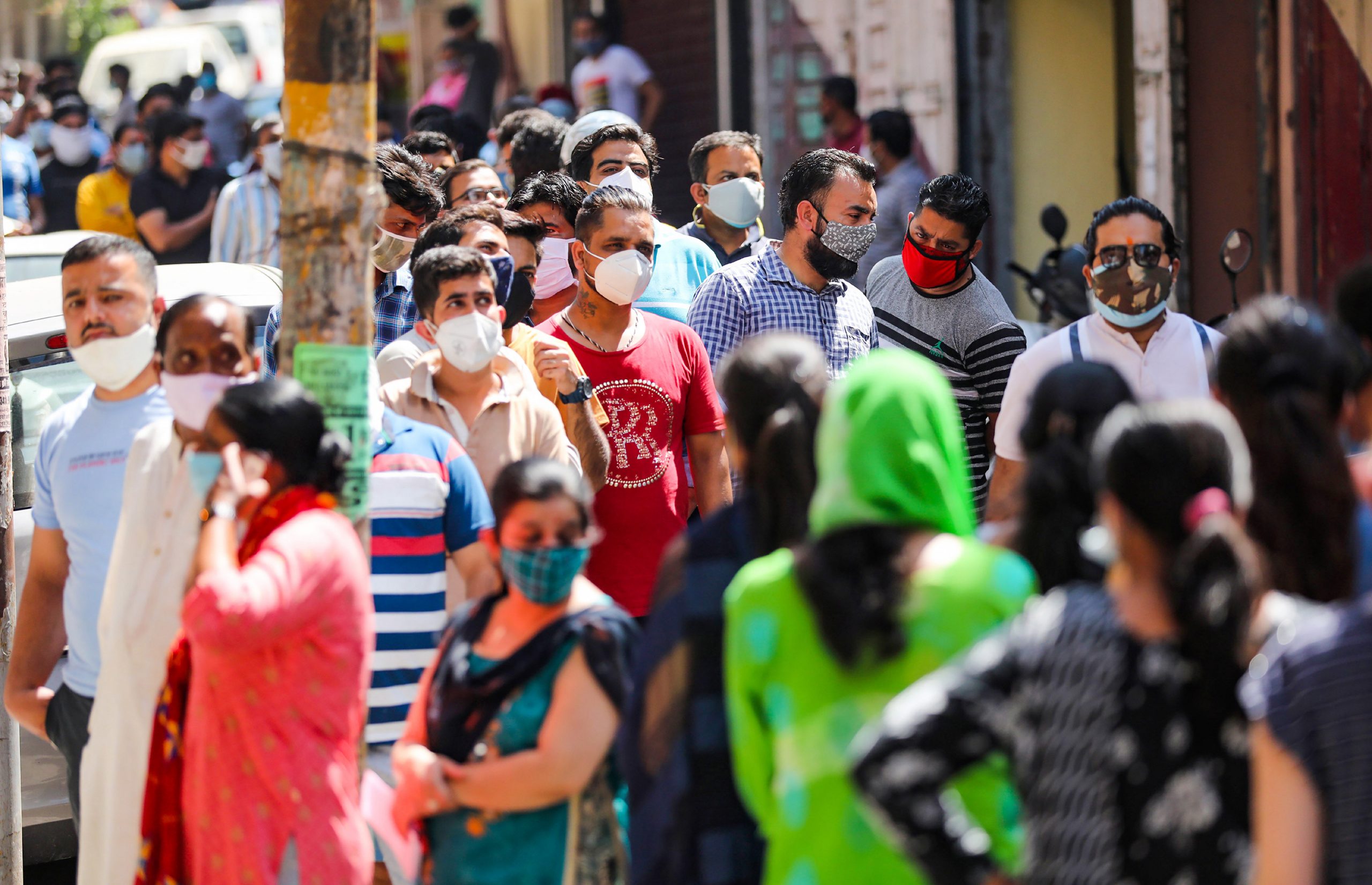A member of the NITI Aayog, Dr VK Paul, on Thursday busted 7 myths about India’s COVID-19 vaccination drive, as per ANI reports. The Indian government has been facing criticism for the shortage of COVID-19 vaccines across the country.
Also read: Zydus Cadila requests human trial approval from DGCI for antibody cocktail
In a statement titled ‘Myths and Facts on India’s Vaccination Process’, the official refuted the claims made against the centre of abandoning states and not working to increase the coronavirus vaccine production. He said that these statements were distorted, half-truths and blatant lies.
Myth 1: Centre is not doing enough to buy vaccines from abroad
Talking about the Indian government’s efforts to engage with major vaccine manufacturers worldwide, Dr Paul, according to ANI, said, “Multiple rounds of discussions have happened with Pfizer, Johnson and Johnson and Moderna. The government offered all assistance to have them supply and manufacture their vaccines in India. However, it is not that their vaccines are available in free supply. We need to understand that buying vaccines internationally is not similar to buying ‘off the shelf’ items.”
Also read: RBI pegs FY21-22 growth at 10.5%, says ‘despair lifted by cautious optimism’
He further added that COVID-19 vaccines are in limited supply globally, and companies have their own priorities, game-plans and compulsions in allocating their stocks.
Myth 2: Centre has not approved vaccines available globally
The NITI Aayog member informed that the centre has eased the entry of vaccines approved by US FDA, EMA, the UK’s MHRA, Japan’s PMDA, and WHO’s Emergency Use Listing. He added that the provision has now been further amended to waive off the trial requirement altogether for the well-established vaccines manufactured in other countries. “No application of any foreign manufacturer for approval is pending with the drugs controller,” ANI quoted Dr Paul.
Also read: Will try to comply with India’s new IT rules: Twitter
Myth 3: Centre is not doing enough to ramp up domestic production of vaccines
“There is only one Indian company (Bharat Biotech) that has the IP (intellectual property). GoI has ensured that three other companies/plants will start production of Covaxin apart from enhancing Bharat Biotech’s own plants, which have increased from one to four. Covaxin production by Bharat Biotech is being increased from under one crore per month to 10 crore month by October. Additionally, the three PSUs will together aim to produce up to four crore doses by December,” Dr Paul said according to ANI.
He added that the government is constantly encouraging the Serum Institute of India to ramp up Covishield’s production.
Also read: New rules to prevent misuse of social media: IT Minister Ravi Shankar Prasad
Myth 4: Centre should invoke compulsory licensing
Commenting on the National Expert Group of Vaccine Administration for COVID-19’s (NEGVAC) statement that compulsory licensing is not a very attractive option, Dr VK Paul said, “Tech transfer is the key and that remains in the hands of the company that has carried out research and development. In fact, we have gone one step ahead of Compulsory Licensing and are ensuring an active partnership between Bharat Biotech and three other entities to enhance the production of Covaxin. A similar mechanism is being followed for Sputnik.”
“If vaccine-making was so easy, why would even the developed world be so short of vaccine doses?” he asked.
Myth 5: Centre has abdicated its responsibility to the states
“Centre is going all the heavy-lifting,” ANI quotes Dr Paul. He stressed that the central government was putting efforts from funding vaccine manufacturers to giving them quick approvals to ramping up production to bringing foreign vaccines to India.
“The vaccine procured by the Centre is supplied wholly to the states for free administration to people. All this is very much in the knowledge of the states. GoI has merely enabled states to try procuring vaccines on their own, on their explicit requests. The states very well knew the production capacity in the country and what the difficulties are in procuring vaccines directly from abroad,” he said.
Also read: Google is committed to comply with local laws: Sundar Pichai on new IT rules
Myth 6: Centre is not giving enough vaccines to the states
“The centre is allotting enough vaccines to the states in a transparent manner as per agreed guidelines, Dr Paul started. He went on to say that the vaccine availability is going to increase in the future, ANI reports.
“In the non-GoI channel, states are getting 25%of the doses and private hospitals are getting 25% doses. However, the hiccups and issues faced by the people in the administration of these 25% doses by the states leave a lot to be desired,” he said.
He slammed some leaders for creating panic among the people. “This is not the time to play politics. We need everyone to unite in this fight,” the NITI Aayog member added.
Myth 7: Centre is not taking any step to vaccinate children
Dr Paul justified the centre’s stand by saying that no country in the world is giving vaccines to children, ANI reports. “There have been studies about the safety of vaccines in children, which have been encouraging. Trials in children in India are also going to begin soon. However, vaccinating children should not be decided on the basis of panic in Whatsapp groups and because some politicians want to play politics. It has to be a decision taken by our scientists after adequate data is available based on trials,” he said according to ANI.







